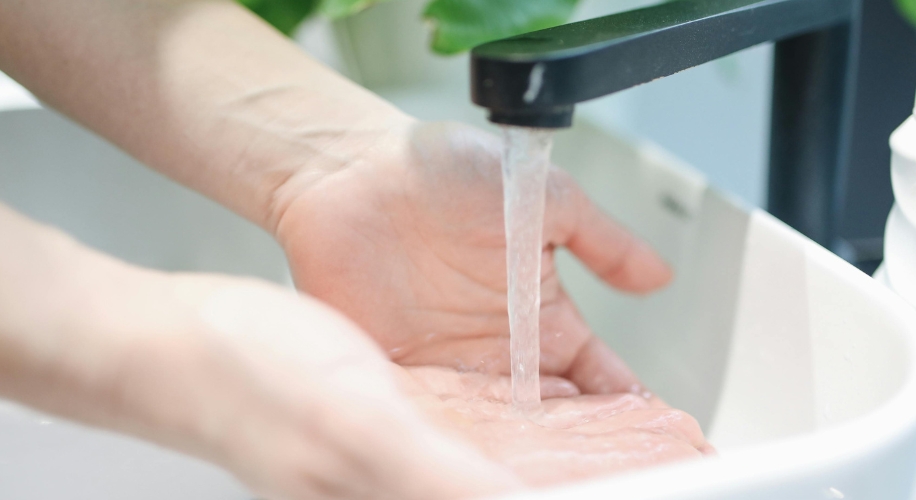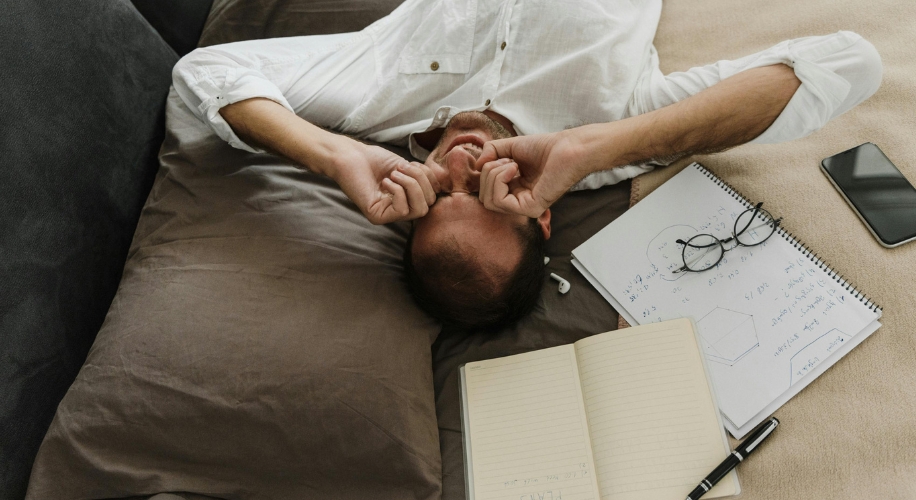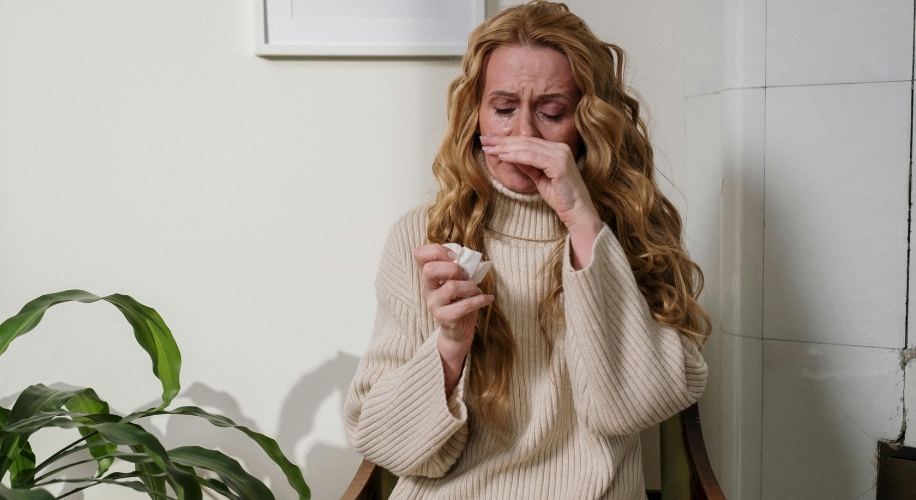The Hidden Risks of Rubbing Your Eyes: Why You Should Break the Habit
- BY Alyssa Buchanan
- IN Eye Health
Rubbing your eyes might feel like a harmless habit, but did you know it could be causing more harm than good? Many of us find ourselves rubbing our eyes throughout the day, whether out of fatigue, irritation, or simply as a reflex. However, this seemingly innocent gesture can lead to a variety of eye health issues, especially during allergy season.
Photo by Arina Krasnikova
Understanding the Allergic Eye Rub
During allergy season, pollen, dust, and other allergens can trigger itching and irritation in the eyes. It’s natural to want relief, and rubbing your eyes might seem like a quick fix. Unfortunately, this can exacerbate the problem. Rubbing your eyes releases more histamines, compounds that your body produces in response to allergens. This can intensify itching and lead to a cycle of discomfort and rubbing.
The Dangers of Rubbing Your Eyes
- Eye Damage: The skin around your eyes is delicate, and rubbing vigorously can cause micro-tears. Over time, this can lead to sagging eyelids, fine lines, and even dark circles under your eyes. Frequent eye rubbing is also a risk factor for keratoconus, a vision disorder that occurs when the normally round cornea becomes thin and irregularly shaped.
- Spreading Allergens: Rubbing your eyes can spread allergens from your hands to your eyes, worsening your symptoms. It can also transfer bacteria and viruses, increasing the risk of infections like conjunctivitis (pink eye).
- Increased Eye Pressure: Rubbing your eyes can temporarily increase intraocular pressure. In individuals with conditions like glaucoma, this can be particularly dangerous.
- Corneal Abrasions: Vigorous rubbing can scratch the surface of your eye (cornea), leading to pain, sensitivity to light, and in severe cases, infections that require medical attention.
Photo by cottonbro studio
Breaking the Habit: How to Stop Rubbing Your Eyes
- Identify Triggers: Recognize situations that make you want to rub your eyes, such as exposure to allergens or fatigue. Addressing the underlying cause can reduce the urge to rub.
- Use Allergy Relief: Instead of rubbing, use over-the-counter or prescribed allergy eye drops to alleviate itching and irritation. Cold compresses can also provide relief without the risks associated with rubbing.
- Practice Good Hand Hygiene: Wash your hands frequently, especially during allergy season, to reduce the transfer of allergens and germs to your eyes.
- Wear and Keep Eyewear Clean: Eyewear can help act as a physical barrier, preventing airborne allergens such as pollen, dust, and pet dander from coming into direct contact with your eyes. Zenni offers a variety of eyewear options that can help protect your eyes from allergens and other irritants. Remember to regularly clean your glasses to prevent particles from irritating your eyes.

Photo by Polina Tankilevitch
While rubbing your eyes might seem like a harmless habit, especially during allergy season, it can have serious consequences for your eye health. By breaking this habit and adopting alternative methods for relieving discomfort, you can protect your eyes and enjoy clearer vision for years to come. Remember to always consult with a healthcare professional or eye care specialist if you experience persistent eye irritation or discomfort. Taking proactive steps now can help preserve your eye health and ensure you enjoy clear vision for years to come.



